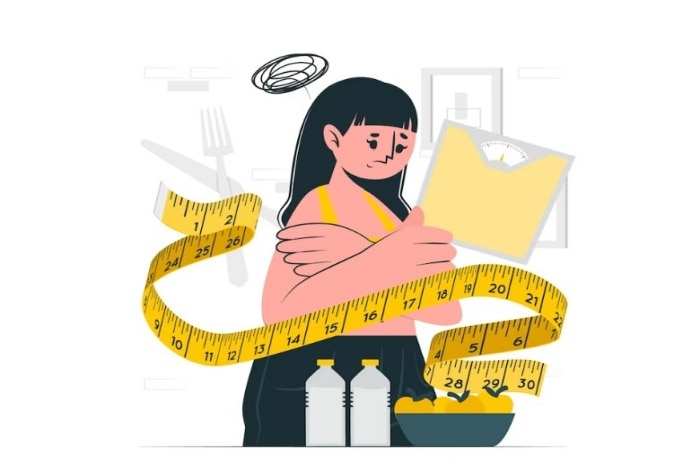Working hard? Eating a proper controlled diet but not losing weight? There could be some reasons that hinder the weight loss process despite all the efforts.
When we talk about weight loss, what are some of the first associations that are made? Diet, regular exercise, lifestyle changes, good sleep, etc. Sometimes even doing all these things to lose weight some people find it hard to lose weight. Despite best efforts, when weight numbers don’t drop, motivation surely begins to wane. But there is a reason for everything. In addition to nourishing the body, there are some factors that we must take into account that can interrupt the process of losing weight. Losing weight involves much more than nutrition. Certain factors can make or break your diet and exercise routine, so you need to consider everything that affects your weight.
Here are some weight loss tips to keep in mind:
- hypothyroidism -Hypothyroidism can slow your metabolism, which means you need fewer calories, making it more difficult to cut enough calories to generate significant weight loss.
- Stress – Have you heard of cortisol? Stress and weight gain go hand in hand for a number of reasons. First, stress affects hormones; increases cortisol, for example, and high cortisol levels lead to weight gain. It also leads to emotional eating, which can sabotage your healthy routine.
- Ssleep deprivation – If you’re trying to lose weight, not getting enough sleep can sabotage your efforts. Lack of sleep is linked to poor food choices, increased hunger and calorie intake, decreased physical activity, and ultimately weight gain.
- Insulin resistance – When we eat food, it is broken down into glucose, which raises blood sugar levels. Our pancreas then identifies glucose and becomes aware of the hormone insulin that plays a role in transporting glucose into cells. When you’re insulin resistant, your receptors don’t recognize glucose, leading to excess energy being stored as fat.
- PCOS– Another possible factor that could make it difficult for people with PCOS to lose and maintain weight is abnormal hormonal influences that regulate appetite and satiety. Levels of the appetite-regulating hormones ghrelin, cholecystokinin, and leptin are impaired in women with PCOS.
In case of underlying medical conditions, it is best to consult a doctor before making any dietary and lifestyle changes.
Published Date: June 10, 2023 9:43 AM IST
–>
–>
